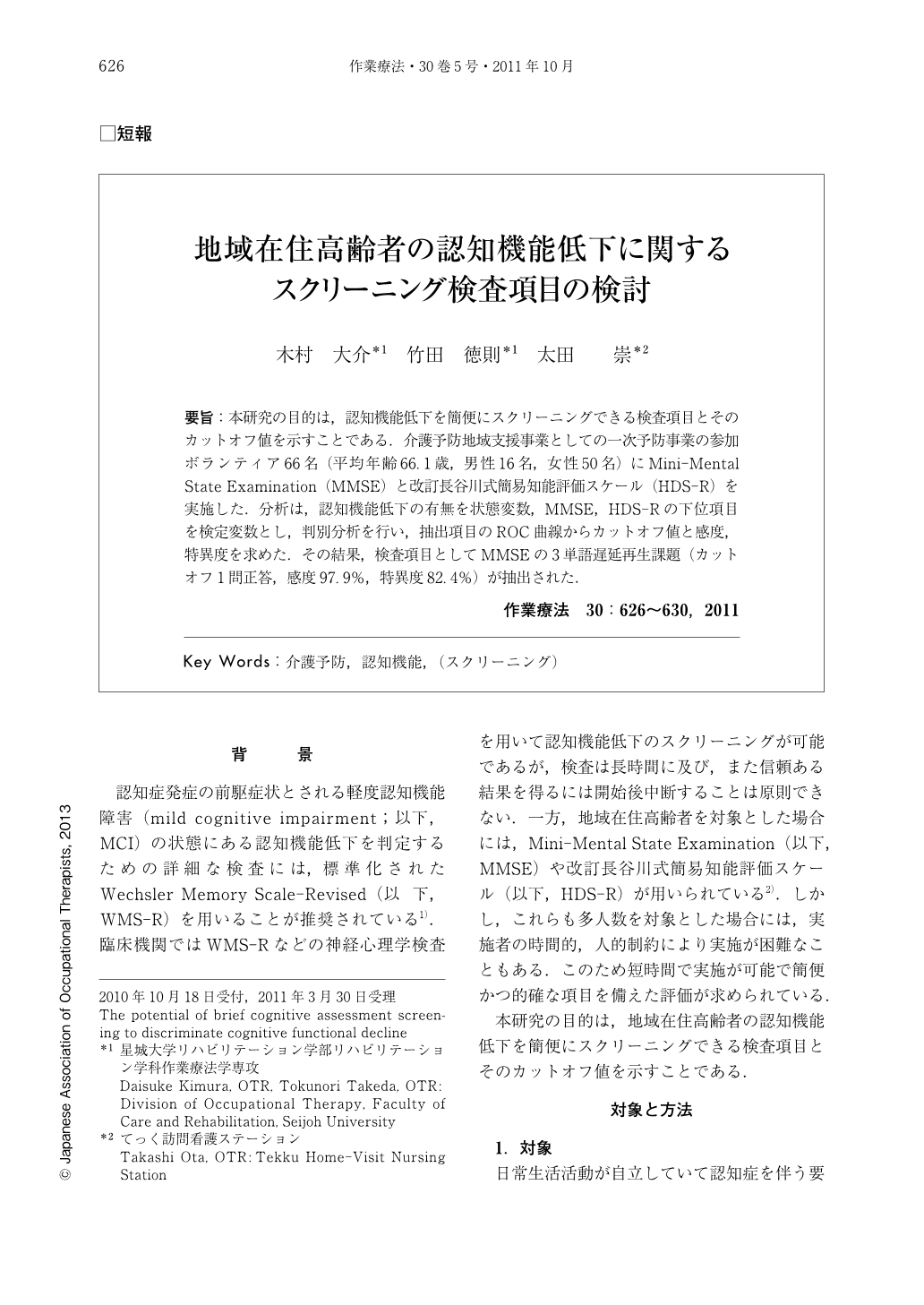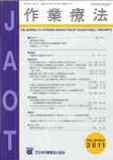Japanese
English
- 販売していません
- Abstract 文献概要
- 1ページ目 Look Inside
- 参考文献 Reference
- サイト内被引用 Cited by
要旨:本研究の目的は,認知機能低下を簡便にスクリーニングできる検査項目とそのカットオフ値を示すことである.介護予防地域支援事業としての一次予防事業の参加ボランティア66名(平均年齢66.1歳,男性16名,女性50名)にMini-Mental State Examination(MMSE)と改訂長谷川式簡易知能評価スケール(HDS-R)を実施した.分析は,認知機能低下の有無を状態変数,MMSE,HDS-Rの下位項目を検定変数とし,判別分析を行い,抽出項目のROC曲線からカットオフ値と感度,特異度を求めた.その結果,検査項目としてMMSEの3単語遅延再生課題(カットオフ1問正答,感度97.9%,特異度82.4%)が抽出された.
Background: Early detection of cognitive decline for the elderly may effectively prolong healthy life. Cognitive assessment is essential for early detection of cognitive decline; however, brief procedure and easily interpretable results are required.
Atm: The aim of this study was to investigate whether brief cognitive assessment aided prediction of cognitive decline in patients with cognitive decline and in healthy subjects.
Partcipants: The participants were 66 community dwelling elderly (16 men and 50 women); these individuals were not diagnosed with dementia. Their mean (SD) age was 66.1 (6.9) years.
Methods: Cognitive decline was evaluated using Mini-Mental State Examination (MMSE) and the revised version of Hasegawa's Dementia Scale (HDS-R). Forward stepwise linear discriminant function analyses were used to examine the discriminative ability of the subscale scores of MMSE and HDS-R, and the selected subscale scores of MMSE and HDS-R were evaluated using receiver operating characteristic (ROC) analysis.
Results: After the forward linear discriminant function analyses, 3-word-recall of MMSE was automatically selected. The optimal cut-off score for the 3-word-recall MMSE test was determined as 1/2; the sensitivity and specificity for this score were 97.9% and 82.4%, respectively.
Conclusion: These data support the use of the 3-word-recall MMSE test as a potential screening test for cognitive function decline in the community-dwelling elderly.

Copyright © 2011, Japanese Association of Occupational Therapists. All rights reserved.


